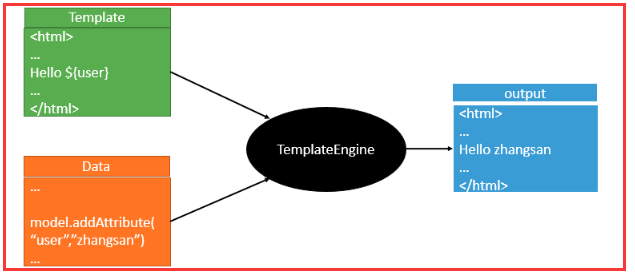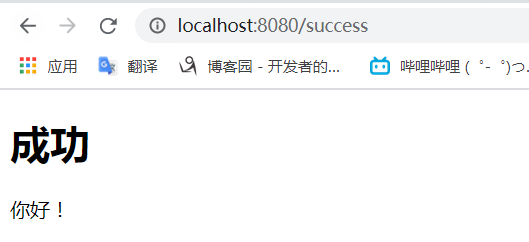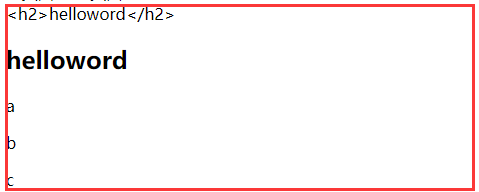模板引擎有:JSP、Velocity、Freemarker、Thymeleaf 等.....

对于模板引擎,SpringBoot(springboot使用的是嵌入式的tomcat所以不支持jsp)推荐的Thymeleaf;
1)、引入thymeleaf (thyme:百里香,leaf:叶子 thymeleaf:百里香叶)
thymeleaf官网:https://www.thymeleaf.org/
pom文件中导入依赖坐标(即开启springboot中的thymeleaf启动器):
<!--模板引擎-->
<dependency>
<groupId>org.springframework.boot</groupId>
<artifactId>spring-boot-starter-thymeleaf</artifactId>
</dependency>

切换其版本操作:在pom文件中的的properties标签中指定版本
可在GitHub中进行查看thymeleaf的版本https://github.com/thymeleaf/thymeleaf/releases
<properties>
<thymeleaf.version>3.0.9.RELEASE</thymeleaf.version>
<!-- 布局功能的支持程序 thymeleaf3主程序 应该搭配 layout2以上版本 -->
<!-- thymeleaf2 应该搭配 layout1版本-->
<thymeleaf-layout-dialect.version>2.2.2</thymeleaf-layout-dialect.version>
</properties>
2)、thymeleaf的使用



使用规则:
ThymeleafProperties.java
@ConfigurationProperties(
prefix = "spring.thymeleaf"
)
public class ThymeleafProperties {
private static final Charset DEFAULT_ENCODING;
public static final String DEFAULT_PREFIX = "classpath:/templates/";
public static final String DEFAULT_SUFFIX = ".html";
private boolean checkTemplate = true;
private boolean checkTemplateLocation = true;
private String prefix = "classpath:/templates/";
private String suffix = ".html";
只要我们把HTML页面放在classpath:/templates/,thymeleaf就能自动渲染;
测试:
@Controller
public class TestController {
@RequestMapping("/test")
public String testThymelea(){
//classpath:/templates/th.html
return "th";
}
}
静态文件

测试结果:

3)、使用案例:
编写一个mapper设置hello的值为你好;然后跳转到success页面
@RequestMapping("/success")
public String success(Map<String,Object> map){
//使用thymeleaf模板引擎,自动找thymeleaf会找template下的页面进行渲染,
map.put("hello","你好!");
return "success";
}
success.html;在<html>标签中导入thymeleaf的命名空间,有提示作用
<!DOCTYPE html> <html lang="en" xmlns:th="http://www.thymeleaf.org"> <head> <meta charset="UTF-8"> <title>成功</title> </head> <body> <h1>成功</h1> <div th:text="${hello}"></div> </body> </html>
th:text="${hello}"是thymeleaf的语法,即取出域中hello的值
访问

4)、thymeleaf语法规则:
th:text;改变当前元素里面的文本内容;
<div th:id="" th:class=""></div>
文档的:![]()
 位置
位置

5)、thymeleaf表达式
Simple expressions:(表达式语法) 一. Variable Expressions: ${...}:获取变量值;OGNL; 1)、获取对象的属性、调用方法 2)、使用内置的基本对象: #ctx : the context object. #vars: the context variables. #locale : the context locale. #request : (only in Web Contexts) the HttpServletRequest object. #response : (only in Web Contexts) the HttpServletResponse object. #session : (only in Web Contexts) the HttpSession object. #servletContext : (only in Web Contexts) the ServletContext object. 例如获取session中foo的属性值:${session.foo} 3)、内置的一些工具对象: #execInfo : information about the template being processed. #messages : methods for obtaining externalized messages inside variables expressions, # in the same way as they would be obtained using #{…} syntax. #uris : methods for escaping parts of URLs/URIs #conversions : methods for executing the configured conversion service (if any). #dates : methods for java.util.Date objects: formatting, component extraction, etc. #calendars : analogous to #dates , but for java.util.Calendar objects. #numbers : methods for formatting numeric objects. #strings : methods for String objects: contains, startsWith, prepending/appending, etc. #objects : methods for objects in general. #bools : methods for boolean evaluation. #arrays : methods for arrays. #lists : methods for lists. #sets : methods for sets. #maps : methods for maps. #aggregates : methods for creating aggregates on arrays or collections. #ids : methods for dealing with id attributes that might be repeated (for example, as a result of an iteration). 二. Selection Variable Expressions: *{...}:选择表达式:和${}在功能上是一样; 补充:配合 th:object="${session.user}:
例如: <div th:object="${session.user}"> <p>Name: <span th:text="*{firstName}">Sebastian</span>.</p> <p>Surname: <span th:text="*{lastName}">Pepper</span>.</p> <p>Nationality: <span th:text="*{nationality}">Saturn</span>.</p> </div> 三. Message Expressions: #{...}:获取国际化内容 四. Link URL Expressions: @{...}:定义URL;
地址中需要参数时用括号包围 @{/order/process(execId=${execId},execType='FAST')} 五. Fragment Expressions: ~{...}:片段引用表达式 <div th:insert="~{commons :: main}">...</div> Literals(字面量) Text literals: 'one text' , 'Another one!' ,… Number literals: 0 , 34 , 3.0 , 12.3 ,… Boolean literals: true , false Null literal: null Literal tokens: one , sometext , main ,… Text operations:(文本操作) String concatenation: + Literal substitutions: |The name is ${name}| Arithmetic operations:(数学运算) Binary operators: + , - , * , / , % Minus sign (unary operator): - Boolean operations:(布尔运算) Binary operators: and , or Boolean negation (unary operator): ! , not Comparisons and equality:(比较运算) Comparators: > , < , >= , <= ( gt , lt , ge , le ) Equality operators: == , != ( eq , ne ) Conditional operators:条件运算(三元运算符) If-then: (if) ? (then) If-then-else: (if) ? (then) : (else) Default: (value) ?: (defaultvalue)Special tokens: No-Operation: _
b补充

测试:
<div th:text="${th}"></div>
<div th:utext="${th}"></div>
<!--每次遍历都会生成当前这个标签 -->
<p th:text="${th}" th:each="th:${th1}"></p>
@RequestMapping("/test")
public String testThymelea(Map<Object,Object> map){
map.put("th","<h2>helloword</h2>");
String [] t = {"a","b","c"};
map.put("th1",t);
return "th";
}

